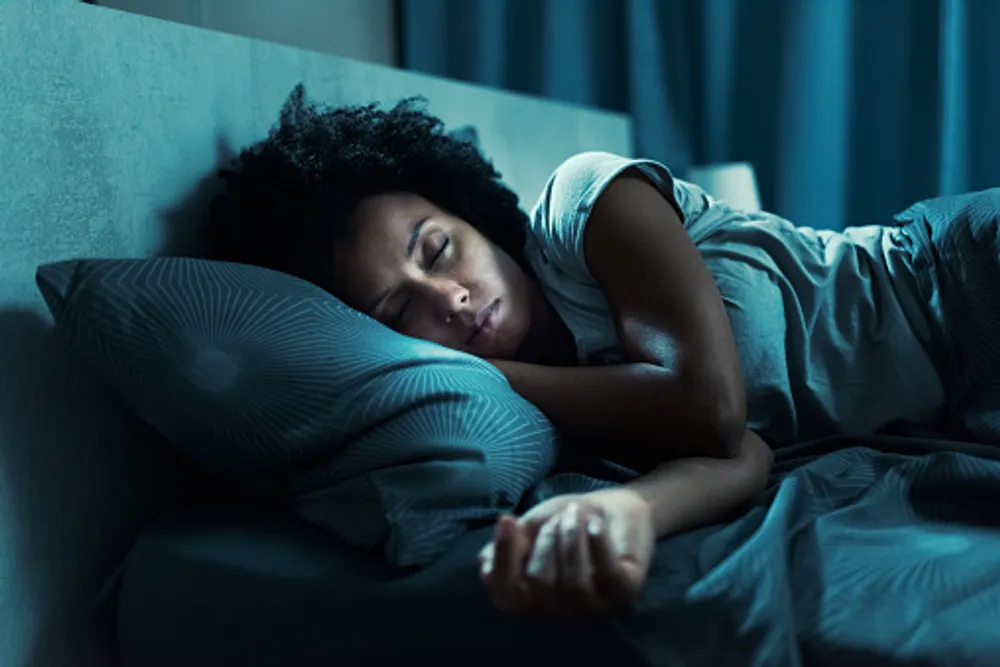Why Is Sleep So Essential?
We dedicate around one-third of our lives to slumber. This period, whether we're conscious of it or not, is crucial for recharging, healing, and even recovering memories.
Given this, it's clear why poor sleep quality or deprivation can influence various aspects of our lives. For individuals dealing with substance abuse or addiction, sleep can significantly impact their recovery process.
While different substances—be it a stimulant, a depressant, or a mix of both—affect sleep in unique ways, they can all result in long-term consequences.
Thus, even if achieving a restful night's sleep isn't your primary concern during early sobriety, it's a vital factor in preventing relapse.
Can Disrupted Sleep Indicate a Potential Relapse?
Research has consistently shown that insomnia could be a forewarning of substance abuse relapse. Quality and sufficient sleep equip individuals early in recovery with tools to resist urges and make wiser decisions.
A recent study extended this understanding, revealing that "self-efficacy for sleep, dysfunctional beliefs about sleep, and sleep-related behavior were all significantly linked to both sleep quality and relapse." Essentially, both your actions and thoughts regarding sleep can influence your relapse risk. Furthermore, those battling alcohol abuse appear especially susceptible to this sleep-relapse connection.
Clearly, sleep isn't the sole factor in preventing relapse. Support from the community, relationship status, age, and job role all contribute to a person's likelihood of relapse.
The Role of Circadian Rhythms
One factor associated with sleep disturbances is the "circadian rhythm." These rhythms control various bodily functions, such as our sleep-wake cycle and even mood and cognition.
Although more research is necessary to fully understand the link between substance abuse and these rhythms, existing studies suggest that "circadian mechanisms may partially explain the well-documented connection between sleep disturbances and substance abuse."
Moods, cognitive abilities, and decision-making can all be influenced by your circadian rhythm's functioning. The most effective way to maintain a healthy rhythm is by sticking to a regular schedule—sleeping when it's dark and waking when it's light. Your internal clock will adapt and help regulate more consistent sleep patterns.
In cases where other factors disrupt circadian rhythms, don't hesitate to consult your doctor, mentor, or support network.
Enhancing Decision-Making Through Better Sleep
When new information is stored in our brains, it becomes more accessible. For instance, as we embark on sober lives and navigate our addiction cycles, these insights are stored in our minds. When a challenging situation arises, we need this information readily accessible to our bodies and brains.
Quality sleep enhances our brain's ability to access these newly acquired lessons, making it easier to make sound decisions.
However, addressing insomnia, anxiety, depression, excessive caffeine, new routines, and even boredom is necessary to develop good sleep practices. The following tips can aid you in establishing healthy sleep habits alongside your recovery.
Advice for Improved Sleep Practices
-
Ensure Adequate Sleep: Strive for at least seven hours of sleep each night. If you've had a few short nights and are behind, the best solution is to return to your healthy sleep routine as soon as possible.
-
Maintain a Consistent Routine: Try to keep a regular schedule by rising and retiring at the same times. Even on weekends, maintaining your circadian rhythm, the internal clock that governs your sleep/wake cycles, is crucial. A rhythm thrives on consistency, so adhere to your routine whenever possible.
-
Embrace Natural Morning Light: Morning exposure to sunlight signals your circadian rhythm to wake up. Similarly, keep your environment dark to indicate to your body that it's time for sleep.
-
Limit Electronics Before Bedtime: The illumination from phones, TVs, and tablets can disrupt our internal clocks, particularly the "blue light" from mobile devices.
-
Create a Cool, Dark, and Quiet Environment: The ambiance of our sleeping space matters. Cooler temperatures, minimal lighting, and quietness signal our bodies that it's time to sleep. For deep sleep, our core body temperature needs to be lower than usual.
-
Dedicate Your Bedroom to Sleep: Making non-sleep activities absent from the bedroom can enhance sleep quality. Activities like working, studying, or watching TV in your bedroom can disrupt your sleep routine. By removing non-sleep activities from your sleep space, you signal to your brain and body the importance of rest.
-
Engage in Healthy Exercise: Exercise can improve nighttime sleep, especially if done at the right time and amount. For those in early recovery, exercise can also combat boredom and keep the mind engaged. Developing new healthy habits can replace negative ones. However, avoid over-exercising or sacrificing sleep for exercise. Early morning workouts can be counterproductive if you're already sleep-deprived.
Concluding Thoughts
Creating a healthy sleep routine doesn't occur overnight. It requires commitment and intentionality. Many people find it beneficial to initiate a healthy schedule during an inpatient treatment program. Sustaining the routine afterward is crucial. For information about residential treatment to assist in your recovery journey, reach out to Impact Recovery Center today.
